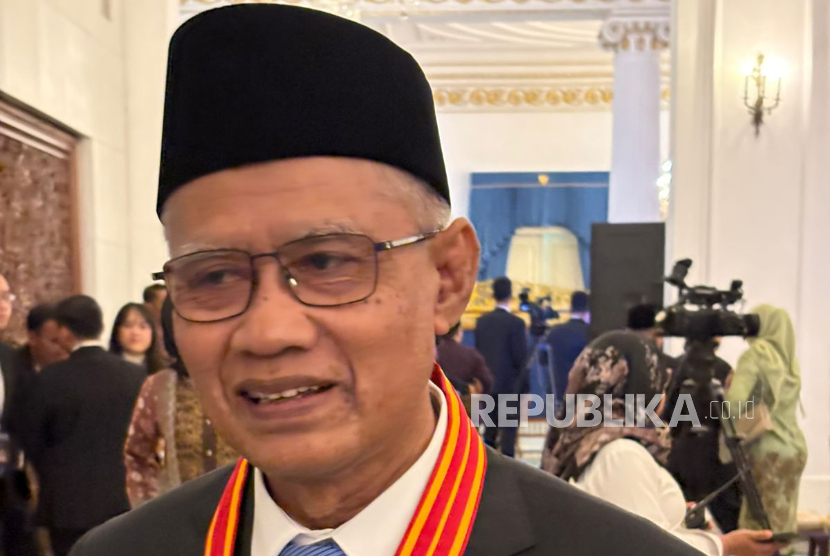REPUBLIKA.CO.ID, JAKARTA -- The Chairman of the Muhammadiyah, Haedar Nashir invites all the people to observe the attitude of the Prophet Muhammad as a person who always brings peace in the midst of conflict.
“In the history of his life, we find the figure of the Prophet not only as an apostle bearing revelation, but also as a person who brings peace, brotherhood and unity in the midst of a conflicted society,” he said in an official statement received in Jakarta on Saturday.
The momentum of the Prophet Maulid, according to him, should be a reflection for observing the attitude of the Prophet Muhammad in many events along his journey.
Haedar said the Prophet has always upheld the value of peace above considerations of personal ego as well as group interests. “The Medina Charter is a tangible proof of how he built a just and peaceful socio-political order. The Prophet did not build civilization by enmity, but by covenants, recognition of rights, and appreciation for diversity,” he said.
Haedar exemplifies one of the most important events in the history of Islam, the Treaty of Hudaybiyah, which contains much wisdom. At first glance, the content of the agreement seemed detrimental to the Muslims. The Prophet and his companions intending to perform the Umrah should refrain and return to Medina without entering Mecca. However, the Prophet received it with wisdom.
“He prefers a peaceful path rather than following momentary emotions in a conflict situation. The Prophet's patience then taught that peace is not a sign of weakness, but a noble strategy that paves the way to greater victory,” Haedar said.
He insists peace is a moral force taught by the Prophet (peace). The true strength of a leader lies not in the courage to fight, but in the ability to hold back, to choose dialogue, and to establish peace.
“The Hudaibiyah agreement is concrete proof that the greatest benefits are born from peaceful choices, not from infighting,” he said.
The Prophet's decision to accept the covenant proved to have a great impact. Peace opened a wider path of Islamic proclamation, until the Quraysh eventually converted to Islam in droves. The Treaty of Hudaibiyah teaches that refraining from conflict is more beneficial than engaging in hostilities.
“The great value of the Messenger of Allah's example is very relevant to our lives today. Indonesia as a composite nation is often faced with political tensions, conflicts of interests, and the temptation of sectarianism (over-reliance on a particular sect or stream). In our social and political dynamics, we still often witness how differences are precisely the reason for degrading, even divisive,” he said.
Haedar advised that the nation's leaders, whether religious figures, public figures, and public officials, should reflect on the sincerity of the Prophet Muhammad. The Prophet (pbuh) taught that leadership is not a tool to establish personal or group interests, but rather a mandate to bring about Maslahat, justice, and unity.
“When leaders put peace forward, cultivate trust and embrace all sides, the nation will be even more solid,” Haedar said.


